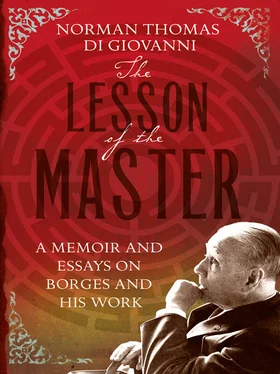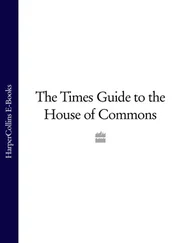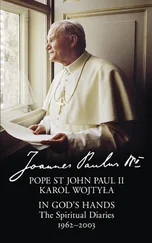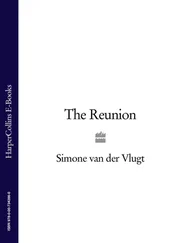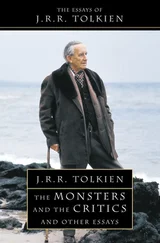But that Friday did come round – according to my diary it was 16 May – and the delivery could be put off no longer. After our afternoon’s ration of Imaginary Beings and just before we knocked off, he put the typescript in my hands, saying, ‘Don’t read it until Monday; we’ll talk about it then.’ I suppose it was one last desperate try; maybe he thought he’d have better luck and Monday would never happen.
The story was ‘The Meeting’, a marvellous tale set back in 1910 about two well-off young men who quarrel over cards and fight a duel with knives in which one of them dies. At the same time, on the fantastic side, the story is about the secret life of the weapons the men had chosen. I found it remarkably polished, and the draft contained only a couple of minor flaws. One was that in the dark, in a house without electric light, two characters begin studying a cabinet that houses a collection of old knives.
‘That’s easy,’ Borges said as we worked out the translation. ‘We’ll have one of them light a lamp.’ And on the spot, in English, he dictated a line to correct the lapse. My diary entries record that on 3 June I worked very late typing up ‘The Meeting’ for the New Yorker, and that at the library the next evening Borges and I translated the bits of new material into Spanish and inserted them into a set of galley proofs that we then delivered to La Prensa, where Peyrou gave each of us a copy of his latest novel El hijo rechazado.
Within three weeks we heard from Robert Henderson at the New Yorker that they were taking ‘The Meeting’, and the news had a dramatic effect on Borges. In fact, nothing could have done more just then to send his confidence soaring. In July, on the seventeenth and eighteenth, I read page proofs of Elogio de la sombra to him, then read through them a second time alone. I corrected fresh proofs on the twenty-eighth. The book was published to great acclaim in August, on Borges’s seventieth birthday. Two days earlier, on the evening of the twenty-second, Emecé gave the book an extravagant send-off on a stage in the Galería Van Riel, where one Dr E. Molina Mascías (whoever he was) spoke at some length, and the ‘primera actriz’ (whatever that means) María Rosa Gallo and the ‘primeros actores’ (ditto) Enrique Fava and Luis Medina Castro read a large number of the poems. The place was packed out and a bit of a circus. On the copy of the book he gave me the day before, Borges had written, ‘Al colaborador, al amigo, al promesso sposo’, for in a few days’ time I was to be married. On the Sunday, his birthday, Elsa threw a little party at home with a cake iced in blue and white in the shape and colours of the book itself. You could even read the title on it. It was not at all Borges’s style, but he was nonetheless radiant. The next day was the wedding, with Elsa and Borges as the official witnesses at the registry office, and with her sister Alicia Ibarra and cousin Olga and Teddy Paz as extras. Poor Elsa, she was obliged to throw a second party in two days – this one for the promessi sposi. Silvina Ocampo and Manuel Puig were there; so was Elogio de la sombra – not the book but the cake, or, rather, what was left of it. Plus the wedding cake. By then, though, quite sensibly, Borges had had enough and did not attend. Instead, he went to work at the library.
After that, it all became a whirlwind. In October, two days before ‘El encuentro’ appeared in La Prensa, Borges finished another new story, the one called ‘Rosendo’s Tale’ in English; the day we completed the translation of it we delivered the original to La Nación. Now the work found its way into my hands as soon as he finished it. In November came ‘The Unworthy Friend’, which we took with us to translate in the United States while Borges was lecturing at Oklahoma and where we gave readings and talks at a number of other universities. ‘Juan Muraña’, the story he had told me about the year before on the very spot where it was set, was finished in mid-January 1970. There was no stopping him now. ‘The Duel’ came next, but before he put the finishing touches to it he began dictating ‘The End of the Duel’. He had long since known he was doing the impossible – writing a new book of stories. On 3 March he finished ‘Guayaquil’ and on the fifth began ‘Doctor Brodie’s Report’. The day he finished ‘Brodie’ he began ‘The Gospel According to Mark’, completing the first draft of it in under a week. The only hiccup came when he had reached the eight mark. By then he was so anxious to see the collection in print that he ran out of patience. Not of stories, thank goodness, but of patience. He had another three in mind but he simply couldn’t wait. As the completed stories were very short, a book of them would have come to no more than seventy pages, and I considered that a mistake. He had been invoking Kipling and the Plain Tales from the Hills as a kind of model for his brevity; I pointed out, however, that Plain Tales ran to over three hundred pages and contained forty stories. It was no use; he was going to see Frías to tell him he wanted to publish a book of eight stories. And off he went.
I picked up the phone, got Frías, and explained the situation. ‘Say no to him,’ I told the publisher. ‘Tell him he’s got to write at least three more. They’re there in his head but he’s just being lazy.’
Frías saw that I was right. Borges came back and told me that Emecé wanted another three stories. To his credit, he didn’t sulk over the news for even a second. Sulking, like self-pity, was never one of Borges’s traits. Instead, he immediately set to work writing the three required stories, probably counting his blessings that he had three more stories to tell. I never told him about my intervention. We set about rereading and ordering the book-length typescript in mid-April, a week later he turned it in, and El informe de Brodie was published early in August. By any standard, it was a remarkable achievement; by his own, it was nothing short of a miracle. After nine years without writing a book, he had now, within twelve months, written two.
Like Turner, a painter he admired, Borges in his old age also set out to fashion something new, freer, more personal. In many ways he succeeded; undeniably, the prose of his late work is less cluttered and more responsible. He felt that at last he had found his voice. Six more volumes of poetry were to follow In Praise of Darkness; seventeen more short stories followed Doctor Brodie’s Report.
‘I no longer regard happiness as unattainable,’ he said bravely on reaching seventy-one.
That year, there were no celebrations when the book came out, and certainly there was no cake. Somewhat sadly, circumstances had changed.
There are among my papers two spiral-bound notebooks with ruled pages, workbooks I called them, in which I took down from his dictation on sixty-four recto leaves the story of Borges’s life. As far as I am aware, this autobiography is the single most extensive piece of writing Borges ever committed to paper. Like much else that we did, it too seems to have been born of a series of accidents or obstacles – unforeseen and unforeseeable events that somehow or other, uncannily, we kept turning to advantage.
With The Book of Imaginary Beings in print and a number of the recent stories and poems beginning to appear in American magazines, Borges and I itched for a chance to present in our own versions a selection of his older stories, the ones on which his fame rested. Of course, we would have preferred to translate the seventeen stories of his best book, El Aleph, written in the very rich period between 1945 and 1953, but a competing publisher, who claimed rights to about half these tales, prevented us from doing so. Our own publisher, however, the understanding and very accommodating Jack Macrae, was not averse to obliging us. So by begging, borrowing, and nearly stealing – that is, given the chance, we would have stolen – Borges and I were able to map out the volume that eventually appeared in the autumn of 1970 as The Aleph and Other Stories 1933–1969.
Читать дальше
